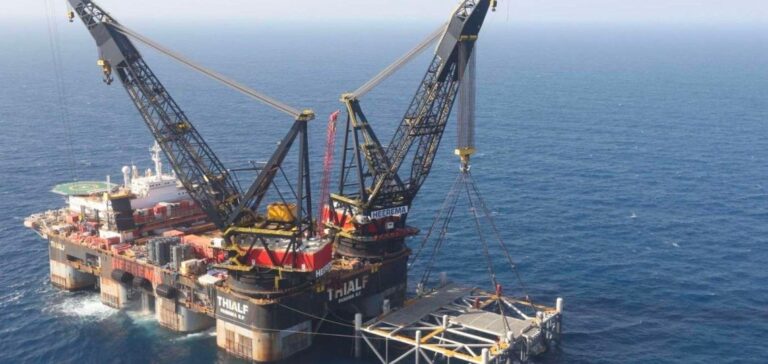In the Black Sea, the gas potential is no longer to be proven. Romania could really benefit from this Eldorado. However, the country’s main gas producers, highlights some obstacles. According to them, the Romanian government must improve the regulations. Thus, gas development could accelerate.
In the Black Sea, a significant gas potential
The gas potential in the Black Sea is recognized. According to Romania, it would include 200 billion cubic meters of gas.
Mark Beacom, General Manager of Black Sea Oil & Gas (BSOG) states:
“The potential for gas discovery in the Romanian Black Sea is huge, it has already been proven.”
In fact, many gas producers, including OMV Petrom, have been preparing to exploit Black Sea gas for the past 15 years. These companies then paid billions of dollars.
This year, BSOG even launched the first offshore development in the Black Sea, in Romania, in nearly 30 years. The company aims to extract 1 billion cubic meters of gas per year. This represents about 10% of Romania’s consumption.
Development hindered by legislation
Despite this enormous potential, gas exploitation in the Romanian Black Sea is hampered by the country’s legislation. This has stopped the activity of gas producers in the region.
Mark Beacom states:
“But if the point of the case is just to find discoveries and leave them there for 30 years, there’s no point.”
Christina Verchere, Petrom’s General Manager, adds:
“The development time has to become much shorter. You have to have the right regulatory and fiscal framework and that’s what we’ve found difficult, it hasn’t always been there.”
Thus, Romanian legislation delays gas exploitation in the Black Sea. OMV Petrom has discovered between 1.5 and 3 trillion cubic feet of gas. However, it has not yet made a final investment decision for its Neptun Deep project, which it will develop alongside Romgaz.
The company is awaiting clarification from the Romanian government, which recently amended the offshore gas law. OMV Petrom is expected to give a decision mid-2023.
On the government side, the energy minister says he expects a decision sooner.
An acceleration of the projects in the Black Sea?
All stakeholders seem to want to accelerate the development of offshore gas in the Black Sea. According to Christina Verchere, “speed is the name of the game.
On the Romgaz side, Razvan Popescu, general manager, intends to do everything possible to see the Neptun Deep project come to life. He states:
“We are extremely committed to getting the Neptun Deep project finalized. That’s where we see the most potential, we see the potential to double our proven reserves. I think the whole state should be focused on that, given the importance of the strategic project.”
Thus, the Romanian company is considering the use of Eurobonds or secured loans. This would allow it to quickly finance its share of the project.






















